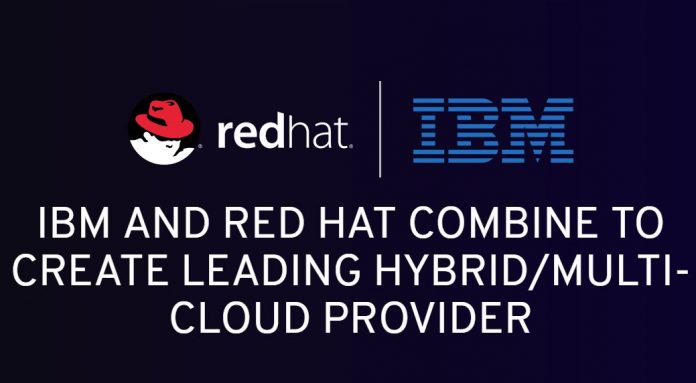Boarding a flight to Taipei, Taiwan today some news came across the wire. IBM purchased Red Hat for about $34 billion in what may be the most impactful technology acquisition of 2018. IBM announced it is purchasing Red Hat. By the time we took off, we were already hearing folks ponder the implications.
IBM Gains a Jewel in Red Hat
Red Hat has essentially done what no other open source company has managed to do, run a thriving business. If you look at IBM, the company has been mired with a business that is hard to explain. IBM generates tens of billions of dollars in revenue, but it has been trying to shape an image from the maintainer of mainframes to a trendy new AI company. Other parts of IBM have been pushing their cloud capabilities with acquisitions of companies like Softlayer. At the same time, competitors like Amazon AWS, Microsoft Azure, Google GCP, Baidu, Tencent, and Alicloud have all been pushing in their respective markets to grow cloud and AI revenue. A growing consensus is that IBM was falling behind.
With the Red Hat acquisition, things have changed. IBM now has its hooks everywhere in the chain. Beyond RHEL, Red Hat has popular foundational technologies like CentOS, Fedora, CoreOS, enterprise OpenStack, Kubernetes, and Ansible tools and the list goes on. That also has some of our readers concerned.
The Counterpoint
Many of the other notes we have received seem to express concern. The concern with a hardware and cloud provider purchasing an OS and foundational software company is easy to understand. Imagine if Dell purchased Microsoft Windows. HP would start a project the next day to replace Windows. Indeed, if you are running a cloud hosting business, are your standard images going to be based on CentOS when you have IBM as a competitor?
IBM has a reputation for contributing to the open source community. On the other hand, IBM also has a decades-long reputation for being able to extract money from their customers and partners. The big question is: how aggressive will IBM be in trying to increase the value of their Red Hat investment? That level of aggressiveness will determine the magnitude and the voracity of an exodus from the Red Hat ecosystem, but also the return on investment for IBM.
With Red Hat under the IBM umbrella, what happens if Canonical is next?
Where to Read More
You can read more here and here. Feel free to comment on your views of the implications.





You should probably also mention Oracle’s Linux which is just rebranded RHEL with some Oracle’s “unbreakable” kernel patches on top of that. The question is if IBM may be going after Oracle with RHEL in their pocket now… We may see clash of giants like we saw in case of Google/Oracle Java dispute. Oracle may go after Linux with ZFS, but this would hit primarily Debian/Ubuntu since RH was careful to avoid ZFS in their usage. So well, interesting times ahead…
i think the deal is worth 34B .. not 32B